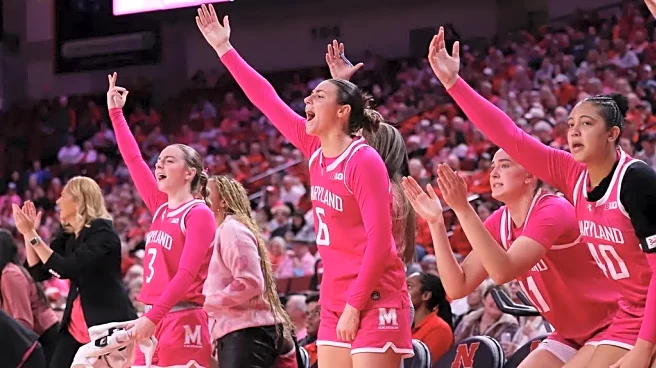Rapid Read • 8 min read
Netflix has announced a new slate of six Mexican films, including 'México 86', starring Diego Luna. The film will explore Mexico's successful bid to host the 1986 World Cup. This initiative is part of Netflix's commitment to invest $1 billion in Mexican content over the next four years. The slate includes adaptations of Mexican literature, such as Carlos Fuentes' novel 'Aura', and features a variety of genres from drama to comedy. Netflix aims to celebrate Mexican Cinema Day by showcasing the diversity and richness of Mexican stories and talent.
AD
Netflix's investment in Mexican cinema highlights the growing importance of local content in the global streaming market. By focusing on Mexican stories, Netflix is not only catering to local audiences but also enhancing its international appeal. This move could strengthen Mexico's film industry, providing opportunities for local filmmakers and actors. The success of Mexican films on Netflix, such as 'Counterattack', which reached over 71 million views, demonstrates the potential for these stories to resonate globally, boosting Mexico's cultural influence.
Netflix plans to continue its investment in Mexican content, with upcoming series and films that reflect the country's diverse narratives. The production of new series like 'Santita' and 'Corruptors' is underway, and the adaptation of 'Lovesick' has been completed. As Netflix deepens its commitment, it is likely to foster more collaborations with Mexican filmmakers, potentially leading to more international success stories. The focus will remain on creating content that resonates with local audiences while having the potential to cross borders.
Netflix's strategy to invest heavily in Mexican content could have long-term implications for the streaming industry. It may encourage other platforms to follow suit, increasing competition and diversity in content offerings. This could lead to a broader representation of Latin American cultures in global media, influencing perceptions and fostering cultural exchange. Additionally, the emphasis on local storytelling might inspire other countries to invest in their own film industries, promoting cultural preservation and innovation.
AD
More Stories You Might Enjoy











